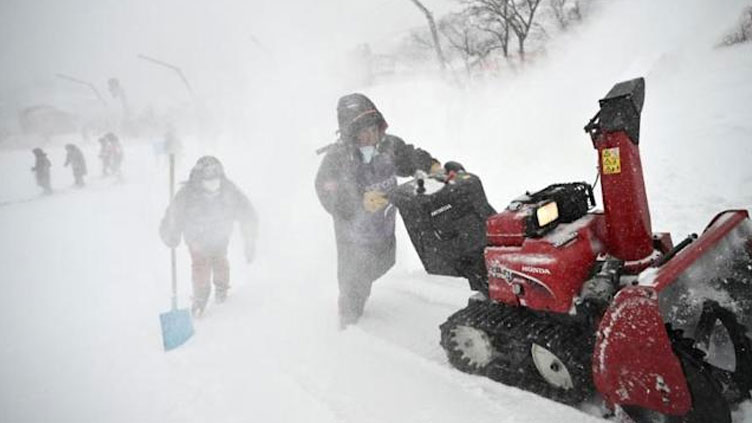Valieva fate in balance as heavy snow disrupts Olympics

Sports
Sport's top court was to hold a hearing Sunday to decide the fate of 15-year-old Russian Valieva
BEIJING (AFP) - Sport’s top court was to hold a hearing Sunday to decide the Beijing Olympics fate of 15-year-old Russian figure skater Kamila Valieva after she failed a drugs test, as snow disrupted the Games.
The Olympics in the Chinese capital were dogged in the build-up by concerns about Covid and human rights and have now passed the halfway point with yet more controversy hanging over it.
This time it surrounds teenage skating sensation Valieva, whose Games hangs in the balance after it emerged that she tested before the Olympics for a banned substance.
The Court of Arbitration for Sport (CAS) was to hold a video hearing before delivering its verdict on Monday, just a day before Valieva is scheduled to compete in the women’s singles competition, one of the most closely watched events at the Olympics.
Valieva was a strong favourite for gold but her Olympics and her fledgling career are now in jeopardy.
Christophe Dubi, Olympic Games executive director, said it was important to remember the "human side of this story... to think about a person of 15 in this situation".
"We need to treat this situation extremely carefully," said Dubi.
Valieva, who starred as Russia won team gold in Beijing on Monday, tested positive for trimetazidine after competing at an event in Saint Petersburg on December 25.
However, the International Testing Agency says the World Anti-Doping Agency-accredited laboratory in Stockholm only reported that Valieva had returned a positive case on February 8 -- the day after she won team gold in Beijing.
The Russian team and the country’s government have raised questions as to why it took six weeks for the result to come out.
Valieva again practised on Sunday, watched by her coach Eteri Tutberidze, who has herself come under scrutiny in the wake of the affair.
The young skater declined to comment to reporters afterwards but appeared in good spirits, laughing and joking with members of the Russian coaching team.
The case is just the latest doping scandal surrounding Russian athletes at Olympic Games in recent years.
Russian competitors are taking part in Beijing under the flag of the Russian Olympic Committee (ROC), providing they have been able to prove they were not tainted by a massive state-sponsored doping programme focused on the 2014 Sochi Olympics.
The Russian flag cannot be displayed at the Games and the national anthem cannot be played.
Heavy snowfall
These Olympics are being held on mostly manmade snow because Beijing is one of the driest parts of China.
However, heavy snow fell on Sunday on the capital and in the mountains outside Beijing where skiing, snowboarding and sliding events are taking place. The snow was forecast to ease up by Monday morning.
The weather forced the postponement of qualification in the women’s freestyle skiing slopestyle, in which Californian-born Chinese sensation Eileen Gu is going for a second gold medal.
The event has been moved to Tuesday.
The second of three training runs for the women’s downhill was cancelled, but the men’s giant slalom went ahead despite the snow.
Swiss favourite Marco Odermatt battled through poor visibility to top the timings in the first leg, clocking 1min 02.93sec down the "Ice River" course in Yanqing.
Austrian Stefan Brennsteiner sat in second, at just four-hundredths of a second, with reigning world champion Mathieu Faivre of France in third.
Seven gold were up for grabs on Sunday, including in the giant slalom, with others in men’s and women’s biathlon, cross-country skiing, short track speed skating, and speed skating.

